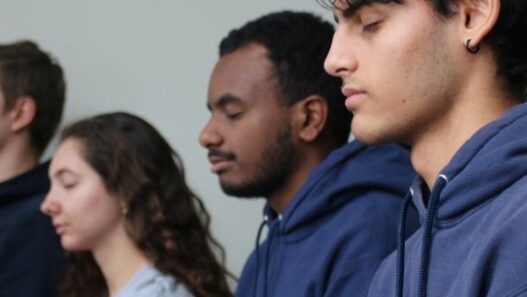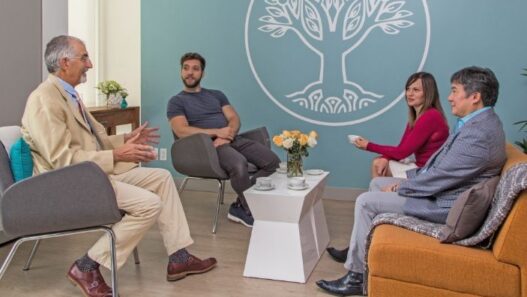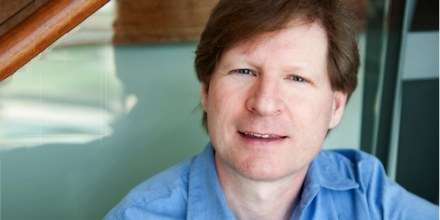
Please meet author, Jay Gardner, a spiritual traveler on the path of ancient sages.
Now called “the Quiet Jay“ by some of his business colleagues, he has come a long way from the brash, fiery character of his early years. However, one thing has always remained the same: Jay’s willingness to follow his intuition that beneath the helter-skelter of everyday life, there lies a field of everlasting peace and happiness.
When Jay speaks, he does so in a disarmingly sincere and unassuming way. He does not proclaim, he just describes what he understands – and lets the truth quietly work on the impact.
In your book, Forever Fulfilled, you talk a bit about your personal background. Can you give a brief overview of your life’s story to our readers?
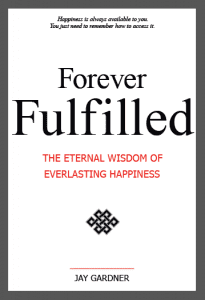 JAY GARDNER: I was born in Pennsylvania. My father worked in Philadelphia which is the biggest city in the state, and from when I was just a few months old up to my early teens, we lived near it. So I’m very familiar with big city, East-Coast life. It’s a very different ’product’ than Montana where I am now!
JAY GARDNER: I was born in Pennsylvania. My father worked in Philadelphia which is the biggest city in the state, and from when I was just a few months old up to my early teens, we lived near it. So I’m very familiar with big city, East-Coast life. It’s a very different ’product’ than Montana where I am now!
You left home to go to college?
JAY GARDNER: When I was 13 years old, our family moved to Florida – so still on the East Coast, but down south. Then, much later, I went to Iowa to go to Maharishi International University.
Prior to MIU, though, I had gone to two other colleges, one in Florida and another later in New England. That’s where I heard about Transcendental Meditation – on a TV special. I was quite surprised that I hadn’t heard about it before, but I guess it just wasn’t my time to know about it until then.
Did it raise your interest right away, the first time you saw the broadcast?
JAY GARDNER: I had become more inward over time, more philosophical if you will. So the TV special happened at just the right time in my life, when I was ready to accept it. I was amazed. It included all the scientific research, parts where Maharishi spoke, some famous actors and actresses, and athletes… I couldn’t see any reason why not to start the practice.
To be honest, during that time in my life, I was having this feeling that there had to be some way for me to unlock my potential. I just knew it, and had been thinking this for several years. Yet I wasn’t sure how – I had no idea.
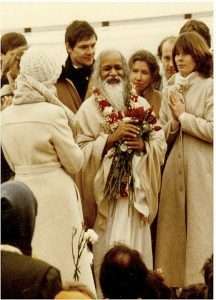
I was very, very stressed at the time. I wasn’t getting enough sleep and I was not eating properly. I felt that my physiology – even as a young man – was starting to break down a little bit. But somewhere in my awareness I knew that there had to be a way to overcome this. With my new philosophical outlook and the inquiring mind that had been developing, it all just clicked when I turned to the TV channel by happenstance that night. TM, it seemed, was exactly what I needed to reduce my stress and begin to unlock my full potential.
During the special, they said they were giving a free introductory lecture on Transcendental Meditation, so I went to that – with my tape recorder in hand, in order not to miss a single word. I sat in the first row, something I never do…
The introductory lecture made it all so much clearer. The people doing the presentation embodied exactly what they were talking about: you could tell they didn’t have a lot of unnatural stress in their physiology. The clarity of their voice, their intelligence, their movements… I just knew that everything which was being said was exactly true.
I ended up learning the technique on College Hill in Providence, Rhode Island, on the campus of Brown University. It was late September of 1986.
You say you felt stressed at that time. However, to an outsider, your life might have seemed really perfect – you enjoyed significant success in sports, in academics…
JAY GARDNER: I started to play sports as a young boy, when I was 8 or 9. I was very good at it up until high school. I was on championship teams for football, basketball, baseball, and so on. That was kind of my life until I got into my late teens.
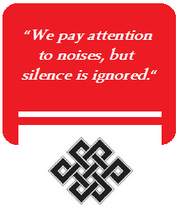 But suddenly, something was missing. My life started to feel hollow. I quit sports, all at once. And I inadvertently started a lifestyle which wasn’t healthy, because I couldn’t find what it was I was looking for. I was frustrated. I couldn’t find contentment, happiness.
But suddenly, something was missing. My life started to feel hollow. I quit sports, all at once. And I inadvertently started a lifestyle which wasn’t healthy, because I couldn’t find what it was I was looking for. I was frustrated. I couldn’t find contentment, happiness.
When I went to college, I took some psychology classes. This idea of happiness was something very important to me – because I couldn’t find happiness anymore. I remember very distinctly thinking, ’Some day, I want to write about how to become happy.’ It seemed like I was learning something new about it every day! Once I started to dig into higher knowledge – once I had this awareness and desire to develop myself spiritually – I began to learn a lot about myself.
My life is not one where I was always entirely pure. When I was in my teens, I had to learn a lot of hard lessons that finally brought me to a place where I could accept learning something like Transcendental Meditation.
’Hardships are our teachers,’ as you say in your book. So you probably had to go through all this.
JAY GARDNER: Exactly. And that’s how I felt when I started to understand more about myself and grow: I somehow needed all this to wake up.
At that time, in 1986, was meditation already a well-known practice?
JAY GARDNER: No, it was not. Let’s go back a few years before 1986. When I was still living in Florida, I started probing into my own life and I bought some books on spirituality. They kind of opened my eyes to Eastern philosophy mixed with Western intellectualism.
So I was already aware of meditation. Yet before I saw the TV special on Transcendental Meditation two or three years later, in 1986, I had never thought of doing meditation myself. I had had an experience reading one of the books – where it had a bit of a technique in there, and I tried it. It really didn’t do anything. So I kind of put this whole concept of meditation aside. However, it certainly prepared the ground for me when the real thing presented itself…
Right, and we’ll come back to this idea you mention in your book – that absolutely everything has its own purpose in life. But before we do that, can you tell us briefly about what you did after graduating from Maharishi International University in Iowa, just to sketch out the context?
JAY GARDNER: After MIU (now called MUM, Maharishi University of Management), I went off to work in New York City, in Manhattan.
I worked in one of the World Trade Center towers, of all places, for a financial publisher. The company I worked for, in addition to publishing a number of financial periodicals for the Wall Street insider, it also was the first company to actually start building websites for financial companies with real-time stock quotes. It built sites for The Wall Street Journal, Barron’s Magazine, Inc Magazine, for Smith Barney, etc.

That’s where I started. I was in NYC, in ’the city that never sleeps’ – I also found out that it’s the city that never stops working! I would go to my office early in the morning, one of the first people in and one of the last out – sometimes I would leave at 10 or 11 o’clock at night. Then I would have to jump on the elevator, run through a shopping mall underneath the World Trade Center, and jump on the last subway train to take me back to where I lived…
The veneer wore off very quickly for me. I realized that you have to have a certain type of priority list to work in New York City. You have to put that on top of everything else, basically, because you are going to lose out on your rest, your normal lifestyle, particularly if you’re a person with a spiritual nature… It just so happened that I was a very hard worker with a spiritual bent, which made it even worse.
I then left NY and went back to the Mid-West to work as an executive recruiter – placing executives in some big companies. Eventually I worked for a marketing communications firm and had the opportunity to bring some really well known firms on as clients. Finally, I ended up setting up my own marketing company.
You’ve been to many places already in your life. Do you think that there’s some sort of an underlying pattern in this journey, and in other people’s journeys?
JAY GARDNER: I think there’s a lot to be said about that.
We do have a certain karma that we’re supposed to work out in our particular lives; a certain dharma – a way in which we’re supposed to serve in our lives. For example, there’s very much a theme running through my life right from when I started to develop a rational mind as a teenager, up until I wrote this book, Forever Fulfilled.
This idea may cause slight unease, at least here in the West. Because assuming that there does exist this underlying pattern – karma or destiny or whatever one calls it – then where does this leave that which we so cherish, namely our individual freedom? What about the notion that we are all self-made men and women, building our own respective lives?
JAY GARDNER: I don’t think there’s a conflict here.
 The way I see it is that there’s a certain direction you’re supposed to go, things you’re going to be good at in life. For example, somebody might have the karma to be involved in sales and financial transactions. But there are many different ways in which you can do that – there’s not one precise way. So you have the free will to choose how you’re going to do it.
The way I see it is that there’s a certain direction you’re supposed to go, things you’re going to be good at in life. For example, somebody might have the karma to be involved in sales and financial transactions. But there are many different ways in which you can do that – there’s not one precise way. So you have the free will to choose how you’re going to do it.
But generally speaking, there’s a certain path you should go. Somebody whose karma, and dharma – allotted duty – is to work as a builder of houses, would be very uncomfortable, and have a very hard time succeeding at something which is not in line with this path. But they can approach it in any unique way they want to.
I believe that God allows us to make our own decisions about how we are going to apply our talents. He has just created the framework – in other words, the laws of nature have been put in place to determine how the world will react to our actions. That is God. But it’s up to you to decide what you’re going to do. As Maharishi said, once you’ve performed the act, you’ve got yourself on the plane and now you have to go wherever it takes you – whether towards more or less fulfillment. These laws of the universe simply give us feedback to help us steer in the right direction.
This links also to our fear of being – or appearing to be – lazy. One might think, ’Okay, if there’s this broad destiny, then what’s to hold me back from sipping a beer and stretching myself out on the couch?’ Yet it doesn’t work this way, does it? You’ll still have your responsibility and your inner calling – something which urges you on nevertheless.
JAY GARDNER: Exactly. Life cannot go on without activity. It would cease to exist.
So you might think that your calling is just to sit and meditate 24 hours a day, and that’s all you’re going to do – but if that’s not right for you, nature is naturally going to make that tricky to accomplish.
 In fact, Maharishi would sometimes have people come to him and say, ’I’m just going to go into a cave in the Himalayas and meditate there for the rest of my life.’ Maharishi would on occasion reply, ’Okay, go ahead!’ He knew that it was not right for some of those people and that in a few weeks they’d come back and say, ’I just couldn’t do it…’
In fact, Maharishi would sometimes have people come to him and say, ’I’m just going to go into a cave in the Himalayas and meditate there for the rest of my life.’ Maharishi would on occasion reply, ’Okay, go ahead!’ He knew that it was not right for some of those people and that in a few weeks they’d come back and say, ’I just couldn’t do it…’
Nature urges us on to what we need to do in our lives. Some people have a sedentary nature – that’s natural for them. But there’s a healthy slow lifestyle, and there’s an unhealthy slow lifestyle. If you’re not involved with spirituality or broadening your awareness in any way – and you have this sedentary nature, then it’s very likely that you’ll sit on the couch and watch TV or read the whole day which isn’t necessarily healthy for you. Whereas if your awareness is a little bit broader, with the same type of sedentary pattern in your life, you’re going to know that you have to stand up and do some exercise every now and then to kick-start your physiology. The laws of nature will make your life uncomfortable for you if you don’t. Unfortunately, some people whose awareness is narrow and bound can get stuck in these types of unhealthy cycles. This is just one example. There are many unhealthy cycles that can be addressed, including examples of those who are overactive. We choose what to do, but nature is constantly reminding us of the path of least resistance. And it’s unique for each one of us.
The main thing is that we don’t have to worry so much. A lot of us worry about what we’re ’supposed to do’. The fact is that we’re already doing what we’re supposed to do – right now. What to do in the next moment is another issue. But even looking back you will have always done exactly what you were supposed to in order to learn your lessons in life.
This realization takes off so much of the burden that we otherwise carry along all the time, thinking about all those endless projects and tasks and to-do lists…
JAY GARDNER: Yes, it’s an unnecessary burden. When you start letting it go and realize that no matter what I’m doing right now – even if what I’m doing isn’t really succeeding per se in the way we tally things in the material world – it still has a value.
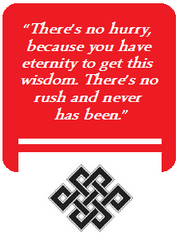 Not succeeding and feeling uncomfortable because of it has a huge value for our lives! It helps us to determine what we should do next; it helps us to determine what we’re good at and what we’re not so good at. It also helps to instill patience… and believe me, these are all things that I didn’t have when I was young. I was a type A personality, a very hard-charging type. But I learned, thanks to Maharishi’s Transcendental Meditation deepening and broadening my awareness, that these things were really bad for me! It allowed me to change, to wake up to the changes that were needed in my life. But because I was so immersed in these unhealthy ways, it also allowed me to recognize and articulate how to avoid them.
Not succeeding and feeling uncomfortable because of it has a huge value for our lives! It helps us to determine what we should do next; it helps us to determine what we’re good at and what we’re not so good at. It also helps to instill patience… and believe me, these are all things that I didn’t have when I was young. I was a type A personality, a very hard-charging type. But I learned, thanks to Maharishi’s Transcendental Meditation deepening and broadening my awareness, that these things were really bad for me! It allowed me to change, to wake up to the changes that were needed in my life. But because I was so immersed in these unhealthy ways, it also allowed me to recognize and articulate how to avoid them.
This letting go, this accepting that right now everything is alright – that we do not have to appear to others in any other way, do not have to control the world – it’s such a blessing to be able to develop and broaden our awareness to finally understand this.
Life is almost like a picture show. What I’ve learned is that it really doesn’t matter what’s happening so much in the exterior. Of course I want to go to work, play with my children, and love my wife, and so on, but the more I meditate and grow – I see that these actions don’t really matter as much as how I internalize them. They’re all really just a projection on a screen of my own consciousness to learn from. That’s more and more my reality today – it doesn’t matter if I win or lose, if I succeed or fail. It’s the lesson I’m here for.
What is meditation for you, in your own words?
JAY GARDNER: What I am now is just an evolving spiritual being. And Transcendental Meditation to me is really the tool which allows me to express that in the most efficient manner possible.
Without transcending, there is really no efficient way to expand those boundaries of our mind – no way to expand the awareness without this systematic diving in to experience pure Being. TM is the jetliner method to do this. This is what meditation is for me: something which enables me to grow in consciousness, and consequently in every other aspect of my life, all at once. As I continue to meditate, I grow as a person – in the way I interact with other people, in the way I do my work, in the way I utilize my computer, and so on. It’s a panacea, a solution for all our shortcomings.
I really don’t think I could stop at this point. Maharishi says in his commentary on the Bhagavad Gita that there’s a place where pure Being eventually saturates the mind permanently. Then you don’t have to meditate any more. Until I get to that point, I don’t think I’ll ever stop! I feel uncomfortable if I ever do my meditation late or happen to miss it because of work. I just don’t feel as good.
Listen to an excerpt from the interview where Jay talks about his new, peaceful mindset acquired thanks to his daily practice of Transcendental Meditation –
An interesting theme here is the role of our rational mind. In your book, you say that “the complexities derived from the intellect only cloud the way if not guided by wisdom“. So meditation could be vital in this respect as well.
JAY GARDNER: You know, when I was in my teens, I was intentionally pushing my intellect in search of happiness. I lost that innocence I had had as a young child. Life had been, for the most part, so easy and enjoyable then… and yet I had somehow lost it along the way. So as a teen I would sometimes just sit there and try to logically figure it out – and I just couldn’t! It was only when I kind of surrendered – not even consciously, but somewhere at a very deep level – when this spiritual side started to open to me. It was a tremendous relief! Even getting the first morsels of spirituality, it started to help me greatly. A tiny feeling of contentment began to take shape, and a kind of memory – I knew that I had done it before, in my previous lives, and just needed to find my way again. It was all very familiar when I started to open this spiritual treasure chest.
So I kept following this inward path even though I left many people behind. It was something I had to do on my own, so I just kept pursuing this track.
And when I finally found Transcendental Meditation, it was a huge step for me – a serious awakening, literally within days of starting the practice.
If you only have the intellect, then life has a harsh quality to it. It’s only when you develop the balance of heart and mind through meditation that it begins to balance out the coldness of the intellectual mind. It can take many years to play out fully, which is fine. As Maharishi said, You can be standing in a mud puddle, but once you finally get the knowledge of how to get out, you still have to take a few steps to leave the puddle behind.
Listen to an excerpt from the interview where Jay talks about the crucial role of heart-mind balance –
Besides intellect, our Western societies also prize the material side of life. You mentioned it briefly already when we talked about your years in New York City, and in your book, there’s a wonderfully intriguing phrase: “People often have more money than they can responsibly spend.” Can you elaborate on this notion?
JAY GARDNER: What I find is that the disparity between the wealthy and the poor is larger possibly than it ever has been on our planet. There are multibillionaires, but the middle class is shrinking and finding it harder to make ends meet. I’m not intending on singling out wealthy people here, because we can focus on any strata of society and find areas for improvement. Nor am I intending on making a political statement – just an obvious assessment of life in our world today. The wealthy are not inherently bad people – I think all people are good, inherently. Yet when you lack broadness of awareness, you can get caught up in very unhealthy cycles of life. And what some of the wealthy get caught up in is attachment to money.
Once you have wealth, you feel that you need to protect it – and you sometimes end up doing things which are no longer responsible. In the process, you yourself become blinded and hardened by these cycles. The fact of the matter is that it would be preferable to think more along the lines of, ’Is this accumulation of wealth really making me happy?’ But even giving money away entails a certain responsibility. It could be tricky, doing it correctly and properly.
 But by developing a balance between heart and mind through the expansion of consciousness, one can learn to let these attachments go. Instead of a narrow path of accumulation and protection, one can start thinking more broadly: ’What can I responsibly do with my money? How can I help not just me and mine, but everybody?’ – because in the end, these decisions affect all of us. Again, I’m not taking a conservative or liberal monetary or political stance here, because we should both liberate and conserve what is valuable to life on our planet. And there will always be those who have more than we do, and less than we do – which is the natural diversity of life.
But by developing a balance between heart and mind through the expansion of consciousness, one can learn to let these attachments go. Instead of a narrow path of accumulation and protection, one can start thinking more broadly: ’What can I responsibly do with my money? How can I help not just me and mine, but everybody?’ – because in the end, these decisions affect all of us. Again, I’m not taking a conservative or liberal monetary or political stance here, because we should both liberate and conserve what is valuable to life on our planet. And there will always be those who have more than we do, and less than we do – which is the natural diversity of life.
To wrap it all up: is this progress along the spiritual path endless? Do you, for instance, still get caught up in things and feel annoyed or stressed out?
JAY GARDNER: We still have difficult moments in our life – even if we’re a meditator, but less of them. What occurs is that there’s always this kind of wholeness underneath. It doesn’t completely rattle you as much as it used to. There’s always this steady, silent stability. And the longer you meditate, the more that stability is there for you – even at times of difficulty. It balances and harmonizes the whole life experience.
Thank you, Jay, for sharing your insightful thoughts with us!
All quotes on red background are from Jay’s book “Forever Fulfilled”


